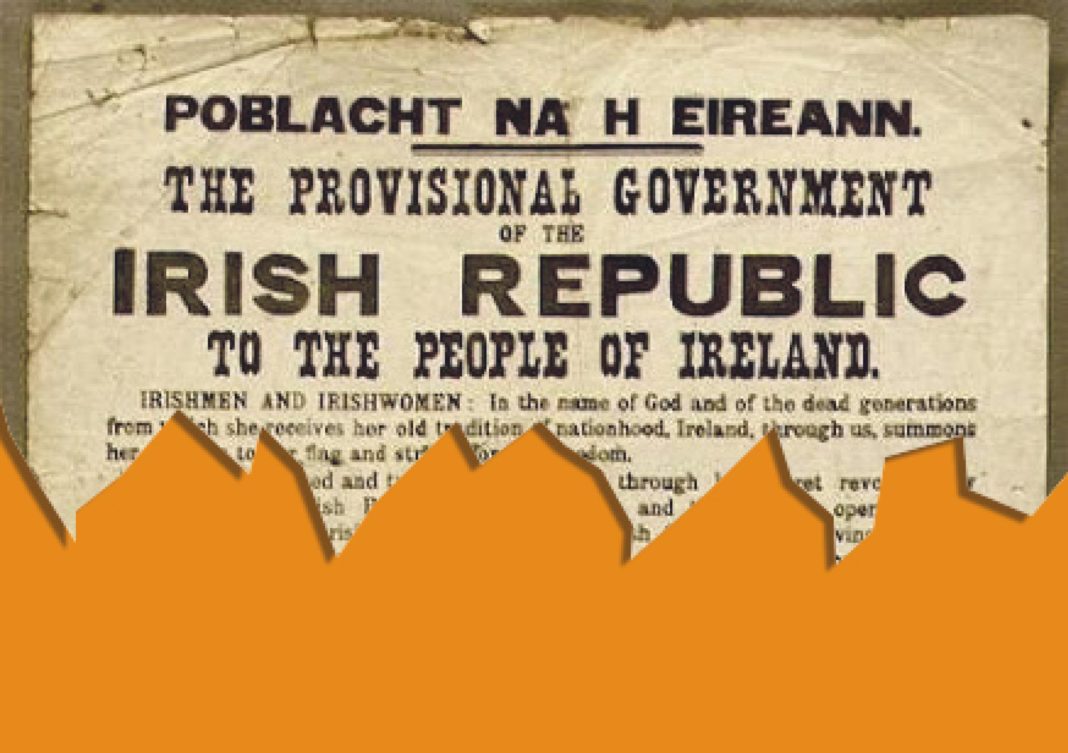June 9th-15th, 1916
At Fermoy the Recorder of Cork resumed the hearing of the application of Mrs Rowe, widow of Head-Constable Rowe, who claimed £2,500 compensation in respect of the death of her husband at Castlelyons. The Recorder held that the application did not come within the section as the death occurred not owing to his exertions in bringing disturbers of the peace to justice, but in the course of his exertions in the discharge of his duties. The murder did not take place on account of any previous malice or ill-will entertained against him by the Kents or any one of them, though he thought there was evidence that Thomas Kent had cherished ill-will towards him. In his opinion the case failed, but as he considered it a reasonable application to make, he would not give any costs against the applicant.
At Lismore Quarter Sessions an action was brought by William Ahearn, Dungourney, against Robert F. Morrison, Lismore for the sum of £20 for the alleged negligent driving of the defendant’s motor car, whereby the plaintiff, his wife and pony and trap were injured. The accident took place beside Cleary’s public house at Tallow Hill on August 15th, 1915. Mr James Murray, solicitor, Lismore defended. After hearing the evidence, his honour held that the car was driven too fast and the necessary precautions were not taken. He gave a decree for £5 3s.
At the Roman Catholic Cathedral, Cork by the Rev’d. F. Flannery, C.C., Mitchelstown, assisted by Rev’d. Fr. Fitzgibbon, Youghal, Lieutenant John T. Murphy, R.A.M.C., son of Dr. DJ Murphy, Youghal married Teresa Mary Skinner. She was the daughter of James G. Skinner, solicitor, King Square, Mitchelstown.
At the annual meeting of the Fermoy Guardians and Rural Council, the outgoing chairman Mr Patrick O’Mahony was re-elected to the position. After expressing his thanks, he said that while all members regretted what had happened in Dublin recently referring to it as a ‘foolish action’, it was a pity that the authorities had not treated Ireland in the same manner as South Africa, where the effects were the same. Now ‘the gaols of the country had been filled with innocent persons who had nothing to say to any of the disturbances’.
At Fermoy Quarter Sessions, prisoner Joseph Francis Livermore, a respectable looking young man, pleaded not guilty to the larceny of a handbag, money made up of bank notes, a treasury note and postal orders, the property of Thomas Power, Kilworth. The Crown case alleged that Livermore returned to England and back to Ireland again before being arrested, as one of the postal orders was traced to Somerset. After hearing the evidence, the jury found Livermore guilty of the crime and sentenced him to three months imprisonment with hard labour.
A roan bull and a red and white heifer strayed from Kilworth Camp. Information would thankfully be received by John Leonard, Knockane, Kilworth or by the Kilworth police.








